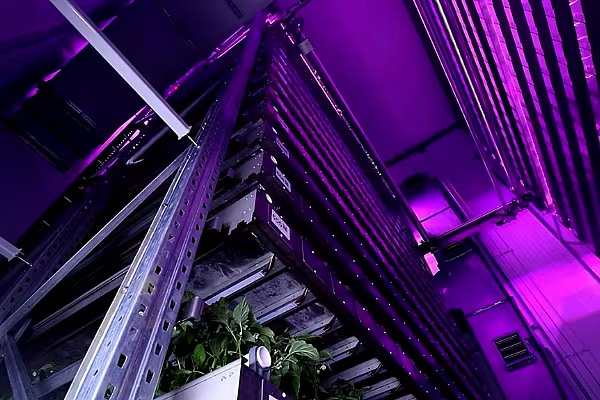Growing lettuce through vertical farming can be as sustainable as growing it in a field, with a significantly lower amount of land used, a new study by the University of Aberdeen and the University of Surrey has found.
The study, A cradle-to-customer life cycle assessment case study of UK vertical farming, suggested that as much as 8,000 hectares of land in the UK could be saved through the use of vertical farming.
Researchers examined a vertical lettuce farm in the UK, and found that it produced the equivalent of 740g of carbon dioxide per kilo of lettuce – comparable to growing in a field, albeit using a lot less land.
Reduce Climate Impact
“Our findings show that vertical farms can help reduce the climate impact of farming, especially if their electricity comes from renewable sources," said Dr Zoe M Harris, co-author of the study and a senior lecturer at the Centre for Environment and Sustainability at the University of Surrey. "“Vertical farming uses about 28 times less land than traditional farming methods."
She added that vertical farms are well suited to city environments, where they significantly reduce the impact of transporting the crop to the people who eat them.
“Our study is an important first step towards demonstrating the impacts of vertical farming being greener than first thought, despite only having a limited data range available," Harris added.
Environmental Footprint
In the lettuce farm studied, electricity use accounted for nearly 40% of the farm's total climate change impact, highlighting that the environmental footprint of vertical farming is significantly influenced by the source of the electricity used.
The researchers also examined other environmental impacts, including land use, water use, and water pollution. These factors further contribute to understanding the overall sustainability of vertical farming practices, they noted.
"One of the biggest environmental impacts came from the jute plugs the lettuce seeds are grown in," added Michael Gargaro, a researcher at the Centre for Environment and Sustainability. "They made up 18% of the climate change impact, as well as the lion’s share of the water pollution and land use too.
“Using another material could make a vertical farm even more sustainable. Future research should consider alternatives like coconut fibre, hemp or perlite."
The study was published in the Journal of Cleaner Production.














